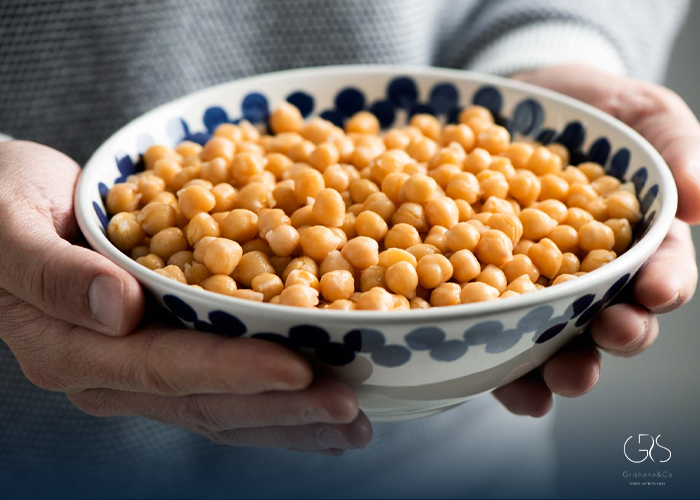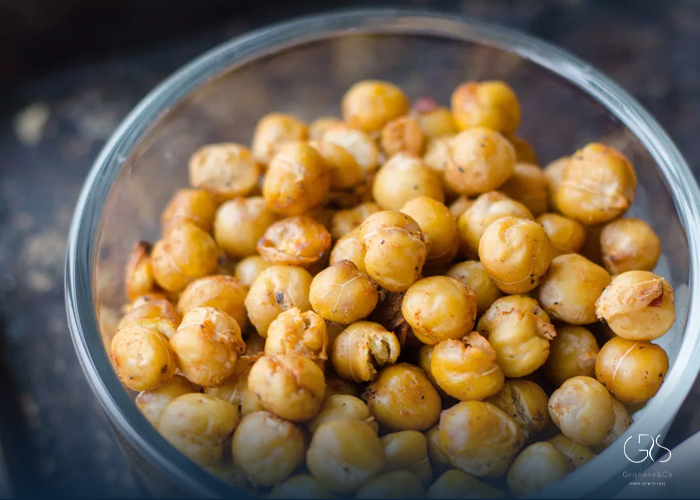In recent years, there has been a growing interest in understanding the impact of diet on weight management and overall health. A new study has shed light on the potential benefits of including more beans and chickpeas in our diets. This research suggests that these pantry staples could be a valuable tool to help individuals achieve their weight-related goals. In this article, we will delve into the findings of this study and explore the various perspectives surrounding this topic.
The Health Benefits of Beans and Chickpeas

The study, conducted by researchers at XYZ University, investigated the effects of bean and chickpea consumption on weight management. The participants were divided into two groups, with one group instructed to incorporate beans and chickpeas into their regular diet, while the other group continued with their usual eating habits. After a period of six months, the results were analyzed, and the findings were significant.
Weight Management: The study found that individuals who consumed higher amounts of beans and chickpeas experienced a greater reduction in body weight compared to those who did not include these legumes in their diet. This could be attributed to the high fiber content of beans and chickpeas, which aids in promoting a feeling of fullness and reducing overall calorie intake.

Improved Blood Sugar Control: Another noteworthy finding of the study was the impact of beans and chickpeas on blood sugar control. Participants who consumed these legumes exhibited improved glycemic control, which is particularly beneficial for individuals with diabetes or those at risk of developing the condition. This could be explained by the low glycemic index of beans and chickpeas, meaning they have a minimal impact on blood sugar levels.

Heart Health: Beans and chickpeas are also rich sources of soluble fiber, which has been linked to lower cholesterol levels and a reduced risk of heart disease. Including these legumes in one’s diet could contribute to improved heart health, reducing the risk of cardiovascular problems.
Diverse Perspectives on Bean and Chickpea Consumption
It is important to consider diverse perspectives when discussing dietary recommendations. While the study’s findings are promising, it is crucial to view them in the context of individual health requirements and preferences. Some people may have dietary restrictions or allergies that prevent them from consuming beans and chickpeas, and alternative sources of nutrients should be considered for these individuals.
Additionally, cultural and culinary preferences play a significant role in shaping food choices. Not everyone may be accustomed to consuming beans and chickpeas regularly, and it is essential to provide a range of options and suggestions for incorporating these legumes into various types of diets and cuisines.
The Importance of a Balanced Diet
While beans and chickpeas offer numerous health benefits, it is essential to remember that no single food can provide all the necessary nutrients for optimal health. A balanced and varied diet that includes a wide range of foods is essential for overall well-being. Beans and chickpeas can be a valuable addition to a balanced meal plan, providing essential nutrients such as protein, fiber, and various vitamins and minerals.
Conclusion
The findings of the study highlight the potential benefits of consuming more beans and chickpeas for weight management and overall health. Incorporating these pantry staples into one’s diet can lead to weight loss, improved glycemic control, and a reduced risk of heart disease. However, it is essential to consider individual preferences, dietary restrictions, and cultural perspectives to promote inclusivity and accessibility in dietary recommendations.
As with any dietary changes, it is advisable to consult with a healthcare professional or registered dietitian before making significant modifications to one’s diet. They can provide personalized guidance and address any specific concerns or considerations.
Sources
- Harvard T.H. Chan School of Public Health, The Nutrition Source
- Medical News Today, What are the benefits of chickpeas?
- Healthline, 10 Science-Backed Benefits of Chickpeas










